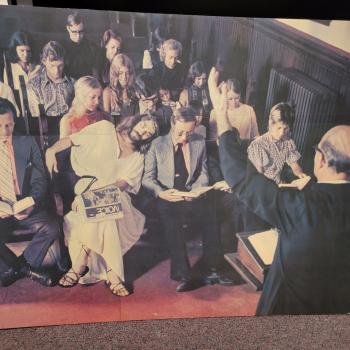Q. I find your analogy, in the Introduction between Lent and the 10 days of awe between Rosh Hashanah and Yom Kippur interesting. I suspect most Christians would say that we are certainly called to ask forgiveness for ways we have wronged others, and saying one is sorry is not enough. Reconciliation is indeed a central calling in both Judaism and Christianity. But Christians would also say that they cannot atone for past sins, or misdeeds, or mistakes. They would say only Jesus can take care of that. Making amends or asking forgiveness is not the same as atoning for one’s previous actions. How would you respond to that line of thinking?
A. I find the idea that “Christians would also say that they cannot atone for past sins, or misdeeds, or mistakes” strange. Such a view would eliminate anyone saying “I’m sorry” or attempting to fix something that was broken, from a teapot to a relationship. Perhaps we are operating with a different definition of “atonement.”
Sometimes people in churches, and synagogues too, take atonement for granted. I have seen on numerous occasions in churches when, after forgiveness and reconciliation are proclaimed and people “pass the peace,” that they do so without a full sense of what has just happened. The passing of the peace” becomes either a perfunctory message or an opportunity to give the “hello” greeting that should have been done before the service started. Unless we, all of us, accept the responsibility to live into the implications of the pronouncement and show the effects of that atonement in our interactions with others, in community, we are being hypocrites.

















